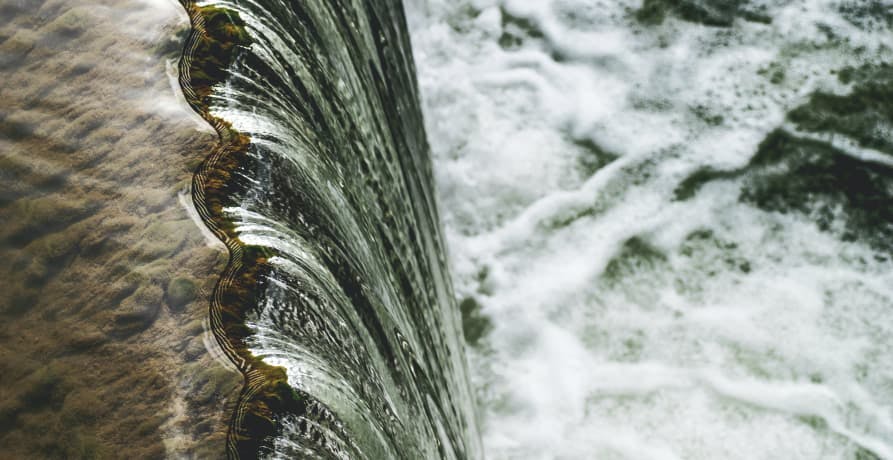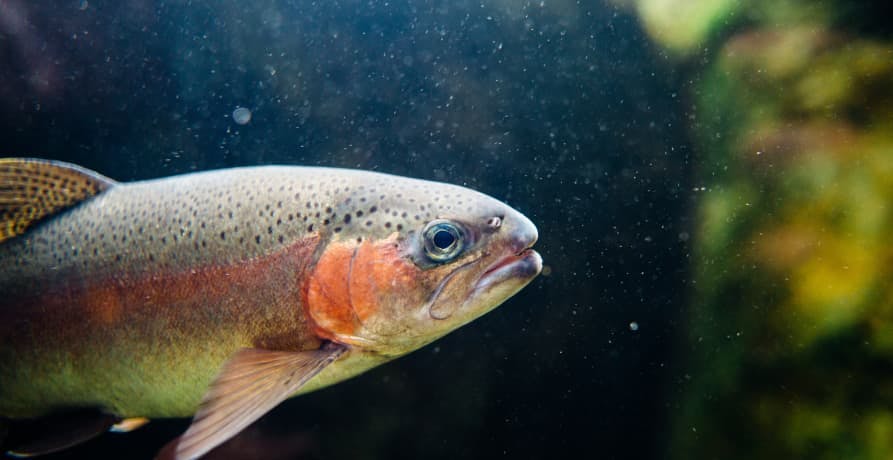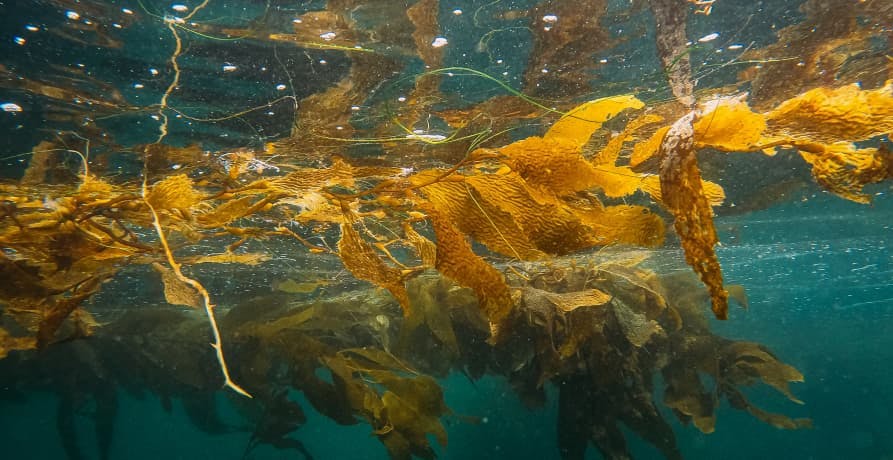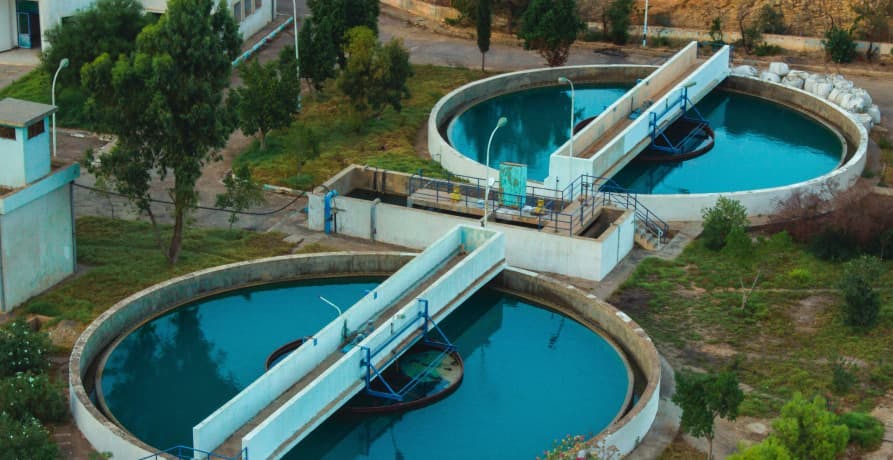ESG / CSR
Industries
5 best practices for water conservation



Clean, fresh water is an invaluable resource, and one that we often take for granted. But as the climate crisis intensifies, our water supplies are increasingly coming under strain. This is why water conservation is so important - conservation of this precious natural resource is critical for the environment and the very survival of life on Earth.
👉 In this article, we’ll explore the importance of water conservation, and will share 5 ‘easy-to-implement’ actions that individuals or companies can take to conserve water.
The importance of water
The importance of water cannot be understated - it is essential to life on Earth. For humans, for example, it does more than quench our thirst. Our bodies are composed of approximately 50 to 70% water, making H2O a crucial component for many of our physiological processes, including digestion, circulation, and temperature regulation. Our cells, tissues, and organs require water to function properly. Even minor dehydration can negatively affect concentration, reduce physical performance, and lead to mood alterations.
Beyond the biological needs of humans, water supports life across the globe. Ecosystems, whether terrestrial or aquatic, are intrinsically linked with water. Wetlands, for example, not only provide habitat for a wide variety of species but also act as natural water filtration systems. Oceans, which cover 70% of the Earth's surface (accounting for 97% of the Earth’s water), regulate the planet's climate, provide sustenance for billions of creatures, and produce more than half of the world's oxygen.
Additionally, water has a significant socio-economic impact. Agriculture, for example, is heavily reliant on water; in many regions, up to 70% of freshwater is directed towards irrigation. And it’s not just the agricultural sector that depends on water, a multitude of Industries, ranging from electricity generation to manufacturing, rely on a steady water supply. Moreover, rivers and oceans have facilitated trade, transportation, and cultural interactions, shaping human societies for millennia.
👉 To learn more about the economic impact of water scarcity, check out our article on why drought is a problem for the economy.
The variety of roles water plays underscores its unparalleled importance in sustaining life on Earth, supporting ecosystems, and enabling the socio-economic activities that define our modern world. This is why water scarcity and depleting water reserves are such a global threat, and why it is important to not only understand the significance of water but also to take steps to conserve it.
Why is our water under threat?
The urgent call for water conservation arises from the growing threats that our water sources face. Population growth, urbanisation, and industrialisation have significantly increased the demand for fresh water. In many regions, this intensified demand has led to the over-extraction of groundwater and the depletion of rivers and lakes. Unchecked consumption, coupled with wasteful habits, exacerbates the strain on these already limited resources. As more individuals and industries vie for their share, the availability of this precious resource diminishes.
Furthermore, climate change, a looming global concern, directly impacts water availability. Altered rainfall, melting glaciers, and shifting weather patterns are affecting our freshwater sources. This not only challenges water preservation efforts but also jeopardises agricultural practices, impacting food security. The remaining 2.5% of freshwater, found in our glaciers and ice caps, is increasingly at risk due to rising global temperatures.
Lastly, pollution further compounds the water crisis. While not all freshwater is directly accessible, a significant portion that is, becomes contaminated by industrial discharges, agricultural runoff, and urban waste. This diminishes the quality of water available for consumption and use.
👉 With unabated urbanisation and industrialisation, water bodies are increasingly under threat from pollution. Pollutants from untreated sewage, fertilisers, and pesticides not only deplete the quality of water but also jeopardise our ecosystems. Why not take a look at our article on water pollution to learn more about this growing issue.
When we practise water conservation and promote water efficiency, we are directly countering these challenges. So what exactly do we mean by water conservation?
What is water conservation?
Water conservation is the effort to reduce water wastage, optimise its use, and preserve its availability. Water conservation recognises the inherent value of water and involves taking active steps to protect this vital resource. As populations grow and cities expand, the strain on freshwater will only intensify. This makes the concept of water preservation not just a choice, but an essential strategy for human survival and well-being.
There are a number of different actions that reduce water wastage, ranging from simple household practices to advanced technological solutions. On an individual level, fixing leaks, using water-efficient appliances, and being mindful of our consumption can make a significant difference. Broader societal initiatives include improved irrigation techniques in agriculture, rainwater harvesting, and wastewater recycling.
Another crucial aspect of water conservation is water efficiency. Water efficiency is at the heart of these strategies, ensuring that we use water in the most productive manner possible without unnecessary wastage.
Benefits of water conservation
Water conservation isn't just about preserving a natural resource; it results in a variety of different (and perhaps surprising) benefits. Let's take a closer look at these benefits:
Cost savings
By employing water conservation practices, one immediate benefit is the reduction in utility bills. Whether it's through water-efficient appliances, fixing leaks, or simply being mindful of our consumption, every drop saved translates to cost savings.
On a larger scale, communities that invest in water preservation methods can cut down on infrastructure expenses, as there's a reduced need for water treatment facilities and dams.
Energy savings
The process of extracting, treating, and transporting water is energy-intensive. By cutting down on our water usage, we reduce the energy needed for these processes. This helps to reduce greenhouse gas emissions, leading to a cleaner environment and contributing to the fight against climate change.
Preserves ecosystems
Water is the lifeblood of ecosystems - providing habitat, nourishment, and sustenance to diverse species. Freshwater ecosystems, like wetlands and rivers, support a rich biodiversity. By conserving water, we ensure these habitats remain intact, allowing flora and fauna to thrive, and maintaining the delicate balance of our environment.

Reduces water scarcity
As freshwater sources become increasingly strained, water conservation ensures the long-term availability of this essential resource. By implementing and promoting ways to save water, we can safeguard against potential scarcities, and help to ensure that everyone has access to safe and clean drinking water.
Improves health
Clean water is closely linked to good health. Conserving water often goes hand in hand with ensuring its quality. By reducing contamination and wastage, water conservation measures can prevent waterborne diseases, leading to improved public health.
Climate Change Benefits
Water conservation is closely tied to climate change mitigation. Efficient water usage reduces the need for energy-consuming treatment and distribution systems, subsequently decreasing carbon emissions.
Moreover, preserving wetlands and other freshwater ecosystems, which act as carbon sinks, plays a pivotal role in regulating global temperatures. By championing water conservation, we're not only addressing immediate water concerns but also contributing to a broader strategy against the escalating threats of climate change.
👉 To learn more about carbon sinks and the crucial role they play in the fight against climate change, why not check out our article on the topic.

What’s being done globally to conserve water resources?
In recent years water conservation has taken centre stage in global discussions. At its core, conserving water involves a two-pronged approach: reducing wastage and enhancing efficiency. Across the world, a host of initiatives are being set in motion to achieve these goals.
Governments, NGOs, and community groups are collaborating to develop policies, guidelines, and campaigns aimed at promoting water-saving behaviours. These range from public awareness campaigns that highlight the importance of water conservation, to investments in infrastructure that prevent loss through leaks or outdated systems.
Technological advancements also play a crucial role. Innovations in agriculture (one of the sectors that consume the most freshwater) have introduced techniques like drip irrigation, which uses much less water than traditional methods. In urban areas, wastewater recycling is increasingly being adopted, turning previously discarded water into a reusable resource.
Moreover, international collaborations are strengthening the cause. Global forums and conventions are fostering knowledge exchange, enabling regions to learn from each other's successes and challenges in water management. By pooling resources, expertise, and innovative ideas, the collective commitment towards water conservation continues to grow, setting the foundation for a more sustainable and water-efficient future.
However, water conservation is a collective effort and something that we can all play our part in. In addition to these global efforts to improve water conservation, there are a number of different things that we can do individually, or as a business, to reduce our water consumption. Let’s take a look at these below.
First up, how much water does the average person use?
Before we get into the details of ways to cut down our water consumption, it’s useful to understand how much water the average person consumes, and what activities are the most water-intensive.
If we take the average person living in the United Kingdom for example, research tells us that they consume an average of 146 litres per day. This means that a household with four people living in it will consume over 500 litres of water per day!
So what exactly are some of our daily activities that consume the most water? Unsurprisingly activities like having a bath, taking a shower, and running the washing machine are responsible for the highest volumes of water consumption. A bath, for example, uses an average of 80 litres of water. Showers use less, however at 13 litres a minute, much depends on the length of the shower you take as this can quickly add up!
If we dig a little deeper into the consumption habits of the average person living in the UK, our use of water is actually much higher when you take into account so-called ‘virtual water’ - i.e. water that is used in the production of things like imported food and textiles.
When we take into account this indirect water consumption, the average person in the UK is estimated to consume around 4,646 litres a day! Vastly more than the 146 litres of direct water usage that’s often quoted.
This is why it’s important not just to pay attention to the water we’re using on a day-to-day basis, but also to the different things that we are consuming, and how much water is used in their production. For example, food can have a surprisingly large impact on our water consumption, a diet consisting of meat and dairy consumes around 5,000 litres of water per day, whereas a vegetarian diet only consumes around 2,000 litres.
5 tips for saving water
Water conservation is a shared responsibility, and both individuals and companies can play a pivotal role in conserving this precious resource. By adopting certain practices and making small but meaningful changes, we can greatly reduce our water footprint. Here are five actionable tips that can significantly help conserve water:
Fix any leaks
A dripping tap or a leaking pipe might seem inconsequential, but over time, this can lead to significant water wastage. For companies, especially those operating in large facilities, routine maintenance checks can pinpoint and address water inefficiencies, promoting a culture of water conservation in the workspace.
Invest in water-efficient appliances
For individuals, opting for appliances with an eco-friendly rating, such as low-flow toilets or efficient washing machines, can drastically reduce household water consumption. Companies, on the other hand, can explore industrial-grade appliances and machinery designed for optimal water efficiency.
Install water metres
Monitoring water usage is the first step to managing it. By installing water metres, individuals and businesses can keep track of their consumption, identify patterns of wastage, and take corrective measures. For companies, advanced metering can also aid in leak detection, offering insights into areas of inefficiency.
Reuse and Recycle
Before letting water go down the drain, think of ways it might be reused. For instance, 'greywater' from showers or sinks can be repurposed for flushing toilets or watering plants. Companies can take this a notch higher by investing in on-site water recycling systems, turning wastewater into a resource.
Promote Water Conservation Awareness
Both at home and in the office, awareness is key. Simple reminders to turn off taps, using water jugs in meetings instead of running taps, and educating staff and family members about the importance of water conservation can cultivate a water-saving mindset.
👉 For further reading on reducing water usage, take a look at some of our other articles on the topic.

What about Greenly?
At Greenly we can help you to assess your company’s carbon footprint, and then give you the tools you need to cut down on emissions. Why not request a free demo with one of our experts - no obligation or commitment required.
If reading this article has inspired you to consider your company’s own carbon footprint, Greenly can help. Learn more about Greenly’s carbon management platform here.






